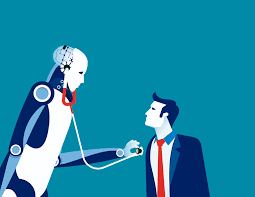Artificial Intelligence (AI) has the potential to revolutionize healthcare, but before this happens, it is important to address the problem of algorithmic bias. AI algorithms may have inherent biases that could lead to discrimination and privacy issues, as well as making decisions without the necessary human oversight. Therefore, it is critical that strong ethical frameworks are established for the use of AI as a clinical support tool.



How does AI work in healthcare?
AI is a powerful tool that can help clinicians make more informed and accurate decisions. For example, AI algorithms have been shown to be able to accurately detect melanomas and predict future breast cancers. Additionally, AI can be used to answer questions that modern medicine cannot address, such as whether a person’s seizures will continue, which medication is most effective, or whether brain surgery is a viable treatment option.
However, before AI algorithms can be implemented in healthcare, it is important to ensure that they are safe, reliable, and unbiased, as techxplore.com discusses .
What is algorithmic bias?
Algorithmic bias occurs when algorithms are based on historical data that may reflect prejudice or discrimination in the past. For example, if an algorithm is trained on predominantly white patient data, it may have difficulty correctly identifying patients of other ethnicities. This can lead to erroneous results and discrimination in medical treatment.
How can algorithmic bias in the implementation of AI in healthcare be addressed?
To address algorithmic bias, it is important to collect data from diverse samples and encourage inclusivity in clinical studies. Also, AI algorithms need to be transparent and explainable, which means humans need to understand how decisions are made. This will allow doctors to have more confidence in the decisions they make with the help of AI.



What is being done to address algorithmic bias in AI in healthcare?
Regulators around the world are taking steps to address algorithmic bias in AI in healthcare. The US Food and Drug Administration (FDA) has proposed making diversity in clinical trials mandatory to reduce research bias. In addition, ethical frameworks for the use of AI in healthcare are being established, which must ensure that algorithms are open, secure, and trustworthy.
What can be done to ensure the safe implementation of AI in healthcare?
It is important that governments and regulators take a proactive approach to ensure that the implementation of AI in healthcare is safe and ethical. This involves establishing a clear and transparent ethical framework for the use of AI in healthcare, and also ensuring that researchers have access to the necessary funding to collect clinically relevant data.
It is important that transparency and open science in the development of AI algorithms are encouraged. Scientists should publish the details of the AI models and their methodology to improve transparency and reproducibility.
Finally, it is crucial that proper oversight and accountability mechanisms are put in place to ensure that AI algorithms do not make decisions without the necessary human oversight. AI should be a support tool for clinicians, not a decision-making tool on its own.
Conclusion
AI has the potential to transform healthcare in ways that have not been seen before. However, for this to happen, it is essential to address algorithmic bias in its implementation. Regulators, governments, researchers, and healthcare professionals must work together to ensure that AI algorithms are safe, trustworthy, transparent, and ethical. If this is achieved, AI could have a lasting positive impact on healthcare, improving the lives of people around the world.